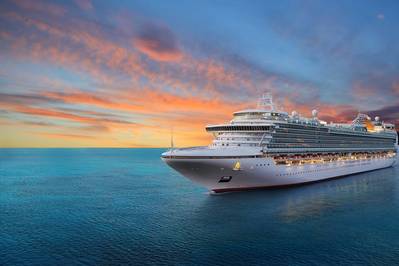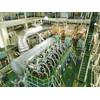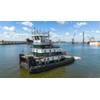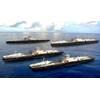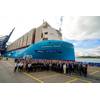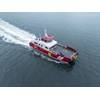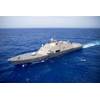MMMCZCS Calls for Early Regulation of Methane Slip
The Maersk Mc-Kinney Møller Center for Zero Carbon Shipping (MMMCZCS) has released a new report: Tackling methane slip in shipping.
Past research at the MMMCZCS has demonstrated that current regulations that include methane, such as CO2-equivalent fuel standards (e.g., FuelEU Maritime), will have a limited effect on reducing onboard methane emissions in the short- to mid-term. Furthermore, the default methane slip value concept does not provide a direct incentive to engine makers, ship owners or operators to proactively reduce methane slip.
Considering the expected growth trajectory for the methane-fueled fleet, methane slip will contribute significantly to GHG emissions from shipping. Therefore, the industry needs effective and relevant regulations that will drive the implementation of solutions that effectively minimize methane slip. To support the development of effective regulation of methane slip, the report summarizes analysis and insights into two key areas:
1) Impact of possible regulatory measures on methane emissions from LNG as a shipping fuel towards 2050
Eight different scenarios were modelled to assess methane slip mitigation strategies based on different ambition levels, incorporating various regulatory and technological measures. The analysis reveals that the early implementation of methane slip regulations for newbuild vessels could achieve reductions in methane slip similar to those from retroactive measures. MMMCZCS therefore highlights that the early regulation of newbuilds as a cost-effective method for meaningful reduction of methane slip, emphasizing the urgency and economic efficiency of early regulatory action to ensure the qualification of the sustainable methane-based fuel pathway with a near-term uptake.
2) Quantifying methane slip from engines on a ship level
Four different quantification approaches were applied to calculate methane slip using real operational data from vessels in different shipping segments. The analysis indicates that a test cycle average quantification approach based on the IMO NOx Technical Code can provide a relatively accurate estimate of real-life methane slip without requiring overly burdensome data collection. Further, unlike the default value approach (e.g. as currently applied in the FuelEU Maritime regulation), this quantification approach would incentivize engine manufacturers to strive for slip reduction and thereby contribute to the need for prompt reduction of GHG emissions in the shipping industry.
MMMCZCS proposes that the regulatory community consider measures targeting onboard methane slip at a ship level in the short term. “This should ideally be achieved through the adoption of the test cycle average quantification method outlined in this report. Furthermore, we encourage equipment manufacturers to standardize the integration of methane slip reduction technologies in their product designs, while also focusing on the adaptability of these technologies for retrofitting on existing vessels.
“For shipowners and operators, actively selecting fuel and engine technology with emphasis on methane emissions mitigation is critical. Such proactive measures will contribute to the reduction of methane emissions, and at the same time mitigate the risk of incurring significant costs due to future regulations.”


